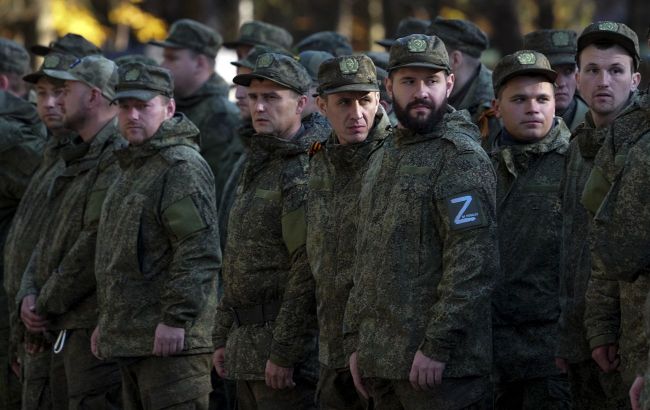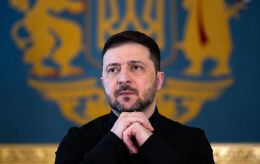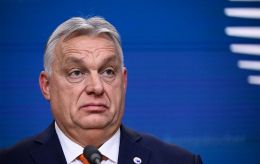Russia's economy may face catastrophic downturn amid war in Ukraine - ISW
 Photo: The Russian economy will not sustain a new wave or total mobilization (Getty Images)
Photo: The Russian economy will not sustain a new wave or total mobilization (Getty Images)
The Kremlin's war effort is putting increasing pressure on Russia's economy. This situation will create sharper challenges for the ability of Russian President Vladimir Putin to sustain the war in the long term, according to the Institute for the Study of War (ISW).
A report cites a publication from The Washington Post, which stated on Sunday that the Russian economy is "in danger of overheating." According to the outlet, excessively high military expenditures in Russia have stimulated economic growth to the extent that they forced Russian companies to raise wages artificially to meet labor demand, remaining competitive amid the high salaries of Russian soldiers.
The Washington Post also quoted Elvira Nabiullina, head of Russia's Central Bank, who warned in July 2024 that the workforce and production capacities of Russia are "almost exhausted."
The outlet noted that private Russian companies struggle to keep pace with military salaries and are increasingly forced to offer wages several times higher than typical industry averages.
The ISW recently reported that Russian regional authorities are significantly increasing one-time bonuses for contract soldiers to maintain the deployment pace of Russia's armed forces (approximately 30,000 soldiers per month). This underscores the fact that Russia does not have an endless reserve of labor and must financially and socially reckon with the constantly rising costs of replenishing battlefield losses through various means of military mobilization.
Migration policy and economic burnout
The Washington Post also highlighted that Russia's strict migration policy, especially after the attack on the Crocus City Hall shopping center in March 2024, further depleted Russian labor resources and intensified economic contradictions. This became particularly noticeable as labor migrants increasingly viewed Russia as a hostile and unattractive place to relocate for work.
ISW detailed the balance Putin attempts to achieve between satisfying the demands of his pro-war ultra-nationalist electorate, which shares extreme anti-immigrant sentiments, and the practical necessity of utilizing migrant labor for both economic and military purposes.
"Putin very likely assesses that calling another partial mobilization wave, or introducing general mobilization, will be too costly to his regime, and has therefore resorted to crypto-mobilization efforts that appear to be placing greater and greater strains on the Russian wartime economy," ISW stated.
ISW analysts also believe that the recent presence of North Korean troops on Russian territory and reports of their deployment in combat zones in the Kursk region further indicate that the entire system of generating military strength under Putin is very fragile.
The report predicts rising costs of sustaining the war as Russia continues to expend human resources and material assets on the frontlines. It emphasizes that "Russian resources are finite, and Putin cannot reckon with these costs indefinitely."
"Russia's economy will reach a burnout point. That burnout point will inflict great costs on Russian society, which may force Putin to make major decisions about how to resource Russia’s war or change Russia’s mode of warfighting to preserve his regime’s stability," ISW stated
Western sanctions against Russia's economy
The United States is urging the finance ministries of the G7 countries to consider the possibility of imposing sanctions on Russian titanium and palladium.
The European Union plans to increase tariffs on Russian and Belarusian agricultural and food products, as well as fertilizers.
Meanwhile, NATO Secretary General Mark Rutte will make a statement on Monday regarding North Korea's deployment of its military personnel to participate in the war against Ukraine.


